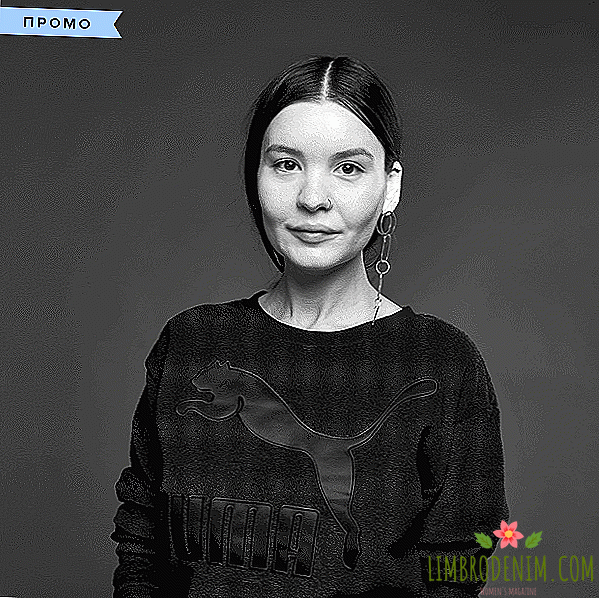What will happen to our accounts after death
Text: Ksenia Obukhovskaya
The past couple of weeks, everyone went crazy with the generator for Facebook, with which you can provide yourself with new statuses from old ones a year in advance. But most of us do not think about what will happen to our selfies and tweets in 100 years. Fortunately, while we blithely scatter the traces of our presence in this world, someone is already preparing to take care of us after death. We understand what will happen to our avatars after our disappearance and how to manage their fate in advance.
In the book "Dealing with Digital Death," writer and blogger Judith Bitterley talks about the importance of services designed to organize their accounts and transfer them to loved ones after death: "It would seem that it makes no difference to me what happens to my social networks when I am gone?" But think about those for whom your abandoned pages will be a painful reminder of your absence. Therefore, it is important to carefully select the information that you would like to be remembered, and transfer it to reliable hands. "
Most of the afterlife resources actually act as an electronic testament. In many ways, these programs track the user's activity, and when there is a suspicion that an irreparable thing has happened to him, they send his password to the mail of someone close to him. During life, the user is left with a decision with whom to share his files, and with whom he does not.

In the spring, Google launched the Inactive Account Manager service, which, by check, browser history and Gmail activity determines when a person stops using it all. By the same principle, Deathswitch and Legacy Locker work, which check whether you are alive or not by sending a password confirmation request. The daily password confirmation process acts as a memento mori. It is invigorating, but still annoying. Jeremy Touman, founder of the Legacy Locker website, said in an interview with The Guardian that the creation of the service is motivated by a large number of passwords to different social networks. For security reasons it is recommended to change them all the time. Updating passwords in a normal will is problematic, but in the Legacy Locker, on the contrary, is very simple. All questions about hackers Toumen answered that the level of protection of the site system is no worse than that of national banks.
Legacy Locker, Deathswitch and other services appeared quite recently. There are not so many real examples of their use, but the question of what to do with already abandoned accounts is still open. They can either be left alone, or notify the site administration and ask that the profile be turned into a so-called memorial. In an unofficial Facebook blog, allfacebook.com has one of the most discussed topics - “Do you remove people from a person’s friends if they die?”. One of the users writes: “The family of my deceased friend turned out to be aware that Facebook administrators can make their daughter’s page a memorial. They used this function, and now her profile doesn’t pop up in alerts like“ people you may know ”or in search. Previously I had goose bumps all over my body. Facebook has deleted all its posts and contact information, but sometimes I visit its page, which has become a good memory for me. " The creators of Legacy Locker assure that the decision to perpetuate the page of your friend can not be taken alone. This function has no reverse action. Special services, they assure, are necessary so that everyone decides for himself what will become of his page.

Konstantin Osmolovsky creator tlenta.ru
This is, firstly, necessary, because well, we all will be there, and not all of us have heirs. If you have someone after death to take up my account, that's good. If not, worse. But in reality, a person must take care of who will pass on his passwords during his lifetime. Take, for example, me (we will not go far): I have websites that bring me income, I have a child who is two years old now. And I would like to, when I go into the other world, he used these sites. This money, for example, which will go from these sites. And if you just have an account in the ball, and you want it to turn into a gravestone after death, it's just beautiful. Another thing is that some people are tied up with some tangible things.
I have an idea - I won’t voice what exactly this domain will be - to make a social network of wills. What to do with me when I'm addition. To give my money (to whom - the house, to whom - the mill, to whom - the cat in the boots). This is still in my head, I tell you first. Not the fact that it will take place. It just came to me in the month of March with this “Tlent” foolish one. It is useful, it is necessary. We live very long. And this is an opportunity to leave something to future generations - even if it is your tape of events and your photos. It needs to be done, it is conservation, preservation. The Internet has spread recently, people have not had time to die. And in 20 years it will be in demand, when people who sit in social networks start to really go to the next world. So, I think I will also have a hand in the development of post-mortem services.
Some resources went even further in the issue of Internet immortality. In August, LivesOn was launched with the tragicomic slogan "When your heart stops beating, you'll keep tweeting". The program analyzes your account and, based on the information received, continues to write tweets in your own way, copying your syntax and favorite topics for conversation. Dave Badwood, one of the creators of the application, in an interview with the Daily Telegraph commented on his brainchild like this: "Sometimes tweets are really very funny, and sometimes it seems that you really wrote it." As shown by personal experience, the imagery of the Russian language LivesOn is not yet available. In general, the site is similar to the generator That can be my next tweet !, which simply makes mashups from old records. Since the launch of the program, about 250 people have registered on the site, which, to put it mildly, is not a dizzying success. Apparently, it was not a good idea for anyone to continue tweeting after death.

After death, there are already a lot of people who want to move to a perfect mechanical body.

Immortality, of course, is sought not only in social networks - but this is still the most realistic option. The desire to live forever at least in the virtual space stimulates basic research in the field of cybernetics and the integration of man and machine. Russian entrepreneur Dmitry Itskov, creator of the odious corporation New Media Stars, became the ideologue of the public movement "Russia 2045". By this date it is supposed to make possible the transfer of consciousness to non-biological carriers. While scientists under the patronage of Itskov engaged in the improvement of artificial organs and the extension of brain life. But in general it is about the development of anthropomorphic robots, which can be connected to the human consciousness. After death, there are already a lot of people who want to move to the ideal mechanical body: more than 30 thousand people have registered on the site: the first avatar people, as the creators call them, should be introduced as early as 2015. The RAS Commission for Combating Pseudoscience is also interested in Itskov's research. Well, but they are supported by Steven Seagal and Google Technical Director, futurologist Ray Kurzweil. Whether we live to see the realization of such concepts is unknown, but here is facebook, most likely, yes. Good reason to think.
ILLUSTRATION: Masha Shishova




